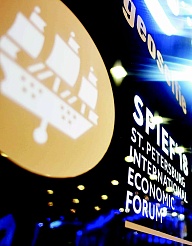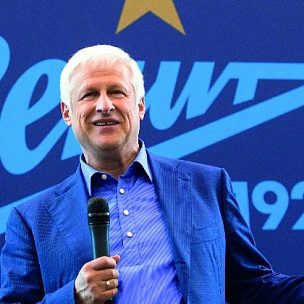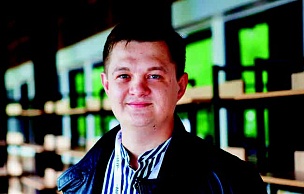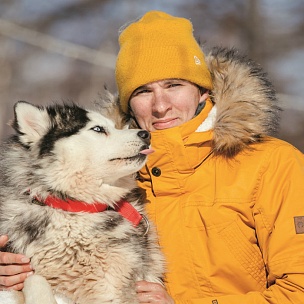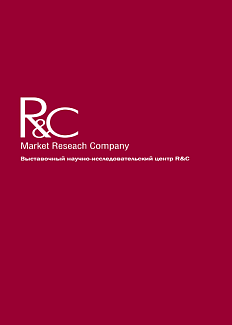Every year, hundreds of agreements worth billions and trillions roubles are signed at major economic forums. For example, at last years St. Petersburg International Economic Forum, 593 agreements were signed worth a total of 2.625 trillion roubles. This year, the figures are likely to be even higher. The Russian Investment Forum, which took place in Sochi in February 2019, produced 567 agreements worth almost 1 trillion roubles. The Eastern Economic Forum 2018 resulted in 220 agreements estimated at 3.108 trillion roubles. And this does not include agreements sums that are a commercial secret.
Russia has developed an entire system of significant international conventions and exhibitions attended by influential politicians, businessmen and opinion leaders from more than 190 countries. Forums are a great opportunity to get acquainted and establish business contacts, a good chance for young executives to prove themselves at their best. In turn, the regions that host the events get a boost to their economic development.
New formats
«I was really impressed with the scale of this event, as well as the importance and relevance of the issues discussed at it,» said Klaus Martin Schwab after attending the St. Petersburg International Economic Forum in 2017.
The founder and president of the World Economic Forum in Davos is probably the most influential person in the event industry. He is worth listening to. He spoke about the fact that «in this new economic situation and taking into account the latest technical achievements, there is a need for new cooperation formats,» that Russia, as a country «belonging to the list of responsible global regulation leaders, must play a central role in the process of defining the new norms of existence in the age of the Fourth Industrial Revolution.»
When thousands of smart, goal-oriented people whose decisions define the future of global politics and economics come together, they create a special kind of space. The territory of the forum becomes a place of power, where the most important objectives for future development are determined
Russia has proven that it plays this role successfully. In 2018, the Russia House in Davos, which traditionally opens its doors during the World Economic Forum, was granted the status of the official Russian residence. It was visited by over a thousand guests from 60 countries. The following year, the number of Russia House guests was over 1,500 people from 70 countries.
Its important to note that, in this age of the Fourth Industrial Revolution, digitization, and fantastic technological achievements, people still require real human contact. Despite social networks and messengers, face-to-face contact remains valuable. Forums are becoming wonderful communication platforms, where participants can find new partners, investors, and clients. Where they can finally, really meet with people who are hard to come by in the day to day, whether they are important
government officials, business people, thinkers, or visionaries.
When thousands of smart, goal-oriented people whose decisions define the future of global politics and economics come together, they create a special kind of space. The territory of the forum becomes a place of power, where the most important objectives for future development are determined. This phenomenon has been noted by practically all participants of Roscongress events, approximately 70 thousand people from 190 countries annually. Notably, the real audience of the forums is significantly larger.
An executive lift
Sessions from the Roscongress foundations key forums are broadcast by the worlds leading television channels. Recordings thereof can always be accessed at the ROSCONGRESS.ORG Information and Analytical System. In this way, they are viewed by millions of people. Forum events are actively discussed on television and social networks. The forums have become a school and a lift for young politicians and business people.
One of the recent examples is the assignment of regional heads in March 2019. Five regions were assigned five young heads, each of whom had their own unique life and management experiences. Andrey Chibis and Alexey Texler, heading Murmansk and Chelyabinsk Regions respectively, previously held high-level positions in federal ministries. The Acting Head of the Altai Republic Oleg Khorokhordin and the new Acting Governor of the Orenburg Region Denis Pasler came from the business community. Batu Khasikov, appointed Acting Head of the Republic of Kalmykia, is a professional athlete and had recently been involved in addressing youth issues.

The events of the Roscongress Foundation bring together leaders of both East and West. Russian President Vladimir Putin, French President Emmanuel Macron and Japanese Prime Minister Shinzo Abe at the St. Petersburg International Economic Forum
Despite their clearly different backgrounds, these new regional heads face a common and complex personal challenge they must turn from established managers to real regional leaders. This is the only way to understand the populations issues, establish relations with local elites, and find a balance between regional abilities and federal demands, which, as is known, include technological and economic breakthroughs and a significant improvement in Russians standards of living.
It is worth noting that these and many other regional leaders made themselves known specifically at large economic forums. This is now an option available in Russia. In just a few years, Russia has seen the creation of a whole system of important events organized at the highest level. SPIEF, the Eastern Economic Forum, the Russian Investment Forum, Russian Energy Week, and the Healthy Life Forum: Towards 80+.
The list continues to grow. In 2019, our country will host the first ever Russia Africa Summit, which will include an economic forum with the same name. In July, Ekaterinburg will host the Global Manufacturing & Industrialisation Summit (GMIS). And in 2020, Chelyabinsk will host the Shanghai Cooperation Organisation (SCO) and BRICS summits.
Regional drivers
A renovated airport with an international terminal and a new domestic flight building, well-kept embankments and building façades, excellent roads, and two modern congress halls are just part of what Chelyabinsk will receive in the run-up to the SCO and BRICS summits.
Forums are becoming drivers of development in the regions hosting them. Proof enough is the transformation of Pulkovo Heights in St. Petersburg or Russky Island in Vladivostok, or the way that the heritage of the Sochi Olympic Games is being used. Today, the Olympic infrastructure hosts over 300 different events a year, which means that the resort town has plenty of visitors not just during the high season, but at other times as well.
According to estimates by the Russian Convention Bureau (which aims to promote Russia as a location for event tourism), each rouble invested in event industry infrastructure brings cities and the regions 57 roubles.
Up to 48% of income comes in form of tax payments from the events themselves and related businesses (hotels, restaurants, retail, etc.) during the event. The rest comes from the delayed effects of the event: forum participant spending stimulates the local economy. The quality of service improves, new jobs and services are created. Consequently, they are used by city residents and tourists visiting the area for reasons unrelated to business.
According to global standards one delegate spends an average of USD 700 a day, or 3 to 4 times more than the average tourist. Of course, the majority of the profit goes to hotels and restaurants. Sociocultural services (museums, theatres, cinemas), retail stores, and transport are also positively affected
Speaking of spending, according to global standards one delegate spends an average of USD 700 a day, or 3 to 4 times more than the average tourist. Of course, the majority of the profit goes to hotels and restaurants. Sociocultural services (museums, theatres, cinemas), retail stores, and transport are also positively affected.

Business forums are a springboard for young executives and investment attraction centres for the regions
Interestingly enough, having visited a city during a forum, many business people return there for a vacation, simply for fun. «Its an experience economy,» said Chief Executive Officer of the Far East Development Fund Aleksey Chekynkov. «I watched the reaction of well-travelled Asian colleagues, when they first arrived at Russky Island in Vladivostok.» The reaction was extremely positive, because there are no places like the Russian Far East in Asia: beautiful and simultaneously European in spirit.
Russias geopolitical position and economic, human, and cultural potential make it a very attractive location for organizing large convention and exhibition events. Their contribution to the countrys economy is currently far smaller than in the event industrys leading countries. Which means that, despite the fact that much work has already been done, there is still much to do.



